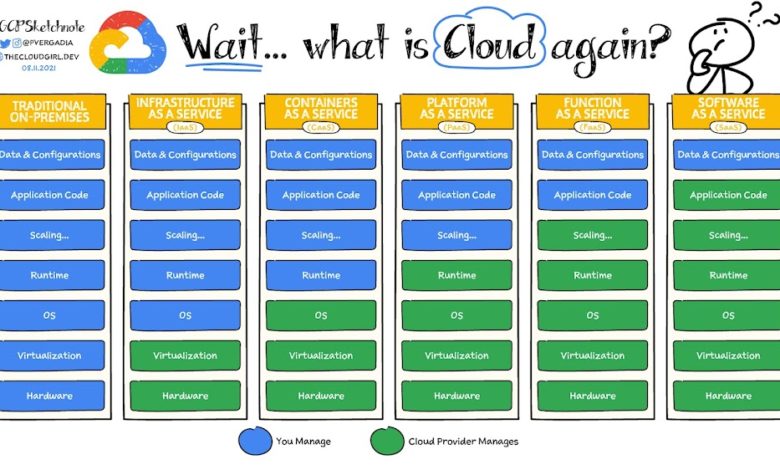Wait What is Cloud Again?
W.M. Chirantha Kithulwatta - Head of the Department (Actg.), Dept. of Information and Communication Technology, Uva Wellassa University of Sri Lanka.

The usage of Microsoft Azure as a cloud platform
Cloud computing refers to the delivery of computing services, including storage, processing power, and applications, over the Internet. Instead of relying on local servers or personal devices to handle data and perform tasks, users access and utilize resources hosted on remote servers provided by a third-party service provider. This model offers numerous advantages, such as scalability, flexibility, cost efficiency, and accessibility. Users can easily scale their computing resources up or down based on demand, reducing the need for significant upfront investments in hardware. Additionally, cloud services enable ubiquitous access to data and applications from any device with an internet connection, fostering collaboration, innovation, and the seamless integration of technologies for businesses and individuals alike.
Microsoft Azure is a comprehensive cloud computing platform provided by Microsoft, offering a wide array of services and solutions for building, deploying, and managing applications and services through a global network of data centers. Azure provides Infrastructure as a Service (IaaS), Platform as a Service (PaaS), and Software as a Service (SaaS) offerings, enabling users to run virtual machines, store and analyze data, develop and deploy applications, and utilize various tools and frameworks. According to the official Google Cloud definitions: IaaS, PaaS, and SaaS can be summarized and compared as above picture.
With a focus on hybrid cloud capabilities, Azure allows organizations to integrate on-premises data centers with cloud resources, providing flexibility and scalability. Azure’s services span computing, networking, databases, artificial intelligence, analytics, and more, making it a versatile and popular choice for businesses of all sizes seeking to leverage cloud technologies.
The choice between cloud platforms, including Microsoft Azure and others like Amazon Web Services (AWS) or Google Cloud Platform (GCP), often depends on specific needs and preferences. While each platform has its strengths, here are some benefits that Microsoft Azure offers:
Integration with Microsoft Products: Azure seamlessly integrates with Microsoft’s extensive suite of products, such as Windows Server, Active Directory, and Office 365. This can be advantageous for organizations already using Microsoft technologies.
Hybrid Cloud Capabilities: Azure has a strong focus on hybrid cloud solutions, allowing businesses to integrate on-premises data centers with the cloud. This is beneficial for companies with existing infrastructure investments looking to extend into the cloud gradually.
Enterprise Focus: Azure is known for its strong enterprise-grade services and support, making it suitable for large organizations with complex requirements. It provides a wide range of services for diverse industries, including finance, healthcare, and government.
Global Presence: Azure has a broad global footprint with data centers in multiple regions, allowing businesses to deploy applications and services closer to their end-users for improved performance and compliance with regional data sovereignty laws.
Comprehensive Services: Azure offers a vast array of services covering infrastructure, analytics, artificial intelligence, Internet of Things (IoT), and more. This extensive service catalog provides flexibility for various business needs.
Security and Compliance: Azure prioritizes security and compliance, offering features like Azure Active Directory for identity management and a range of compliance certifications. This is crucial for businesses operating in regulated industries.
Enterprise Agreement (EA): Azure’s Enterprise Agreement provides pricing flexibility and discounts based on the volume of services consumed. This can be advantageous for large enterprises seeking cost-effective solutions.
Developer Tools and DevOps Integration: Azure provides a set of robust developer tools and integrates well with popular DevOps practices, making it appealing for organizations focusing on agile development and continuous delivery.
The official website of Microsoft Azure lists the loyal customers of it. Some of the customers are as follows.
- Northumbria Healthcare NHS Foundation
- Fujitsu
- NBA
- Unilever
- General Motors
References
Web: https://azure.microsoft.com/en-us/
Web: https://cloud.google.com/learn/paas-vs-iaas-vs-saas

Mr. W.M.C.J.T. Kithulwatta
BSc (Hons) in Software Engineering,
MPhil in Computer Science
MIEEE, MYSF, MIS, MSLAIHEE
Head of the Department (Acting)
Department of Information and Communication Technology
Uva Wellassa University

